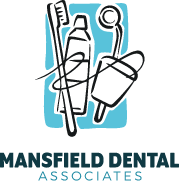Snoring may be a symptom of sleep apnea, but it is not accurate to use the terms interchangeably. When you snore, it is because a partial blockage of your airways causes you to produce noise. Sleep apnea involves a total airway blockage, and you can go without air for ten seconds or more. To clear the blockage, your body will have to wake up, though you might not remember waking up. The frequent disruptions to your sleep cycle you experience with sleep apnea make this condition a real health concern. Your dentist can help treat sleep apnea, and can do so without requiring you to use a CPAP machine.
Health Problems Associated With Sleep Apnea
Sleep apnea prevents you from enjoying a full night’s rest. Because your body is being deprived of the benefits of uninterrupted sleep, you can feel groggy or restless during the day. You could even have trouble staying awake. This inability to properly rest can also cause you to deal with health problems like hypertension, and raise your chances of experiencing heart disease.
Your Dentist Can Treat Sleep Apnea Without Using A CPAP Machine
A special oral appliance from your dentist can take care of your sleep apnea problem by repositioning your jaw. This adjustment puts a stop to tissues in your throat temporarily blocking your airways, so that sleep apnea no longer disrupts your sleep.
Bruxism – Another Dental Issue That Can Affect Your Sleep
Sleep apnea is not the only dental condition that concerns your sleep. People with bruxism grind their teeth, frequently doing when they are asleep. You can wake up in pain because of this, and even damage teeth. Your dentist can make an oral insert that stops your teeth from grinding against each other.





Recent Comments